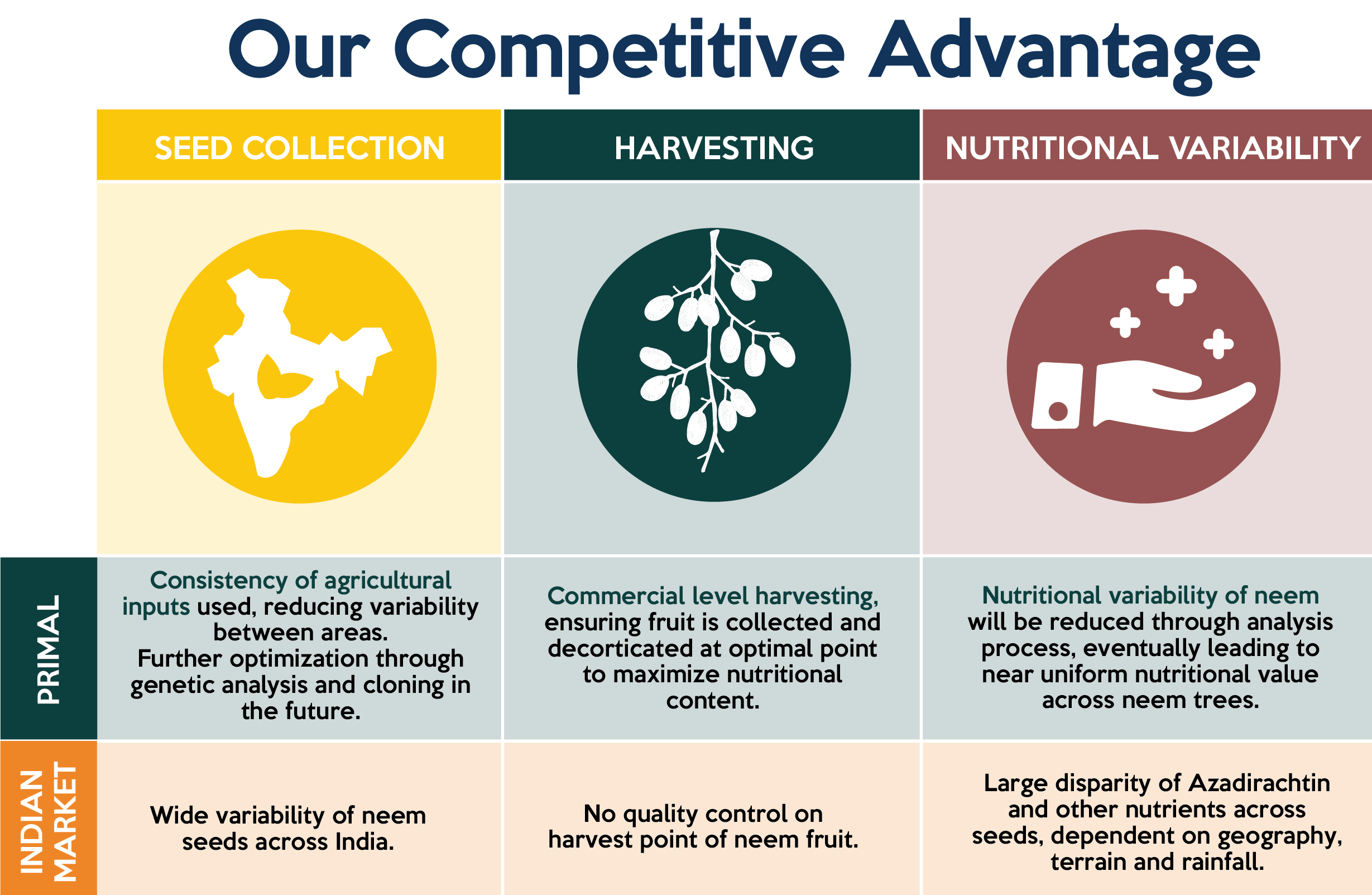In December of 2018 a two-day seminar titled “Neem –
Feeding a rapidly growing population is the ever-growing problem that the modern agricultural industry faces. While the current world population of 7.6 billion is expected to reach 8.6 billion in 2030, fertile soil is being lost at a rate of 24 billion tonnes a year through intensive farming as demand for food increases. Combined with climate change and deforestation, these issues have the potential to seriously threaten life as we know it. According to the seminar’s Guest of Honor, Dr. Rajendra Prasad, Executive Director of the United Nation’s Global Compact in India, neem will play a major role in solving these problems. “Most of the natural resources are sinking and the cultivable area is decreasing, however, we have to face the challenge of feeding the ever-growing population. At what cost is a question that we need to address. We need to make the soil more healthy and productive so that we can switch over to organic farming. This is where neem will play a key role in reducing the input costs for the farmers and helping to increase productivity and quality.”
Dr. Rajendra Prasad highlighted the main components of neem and its efficiency in agriculture as a fertilizer,
At present, India is the biggest neem market in the world. However, due to the lack of large-scale producers, neem prices in India continue to rise as a result of increased demand pressures and supply constraints. A recent government-backed neem-coated urea policy has further fueled demand, increasing prices over 100% in the last two years alone. The Indian neem market additionally faces problems in terms of quality control and harvesting: Local producers are often incentivized through weight of the fruit, without formalized quality controls ensuring that neem fruits are harvested at their ideal harvest point (when the key biochemical, Azadirachtin, is at its highest level) or managed correctly post-harvest. Companies sourcing neem are aware of the fact that these practices compromise
By being able to process directly from our commercial plantations in Brazil, the margins made along the supply chain before reaching the international market can be captured by the producer, thereby increasing the profitability of the by-products processed and sold. This eliminates additional costs from India including:
- Freight costs
- International trade costs (customs, duties, etc.)
- Taxes

Having realized the role that neem would play in the world a few years back, we are now operating the largest commercial neem plantation. However, our accomplishment is not only in the number of trees or the higher yields, but in the fact that we use 100% organic, sustainable and regenerative techniques that have allowed us to prove that the traditional agricultural model can be changed without afecting production. On the contrary, we nurture the soil and the entire ecosystem surrounding our plantation, a practice that will save thousands to millions of acres of land in the future, transforming commercial and global agriculture along the way.
The World Neem Organization recognizes the importance of the neem tree in order to feed the world as well as to bring commercial agriculture into sustainability. With a neem plantation that uses neem to nurture the soil, fight pests and protect the environment, Primal is the ultimate example of a green business that provides safe returns in an industry set to experience huge growth as the global demand for food continues.
Sustainable investing is the way forward, not only to foment responsible business, but also as a way to diversify your portfolio. Agriculture is one of the most promising economic sectors and the neem industry is poised to experience tremendous growth in the future. Learn more about the great potential of neem, by reading our Full Neem Report and our Green Economy Agriculture Report.